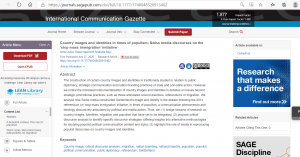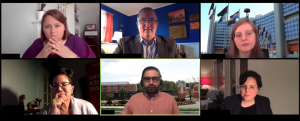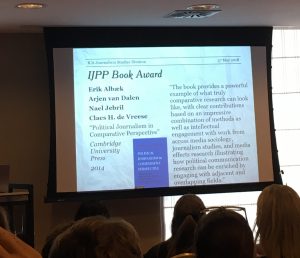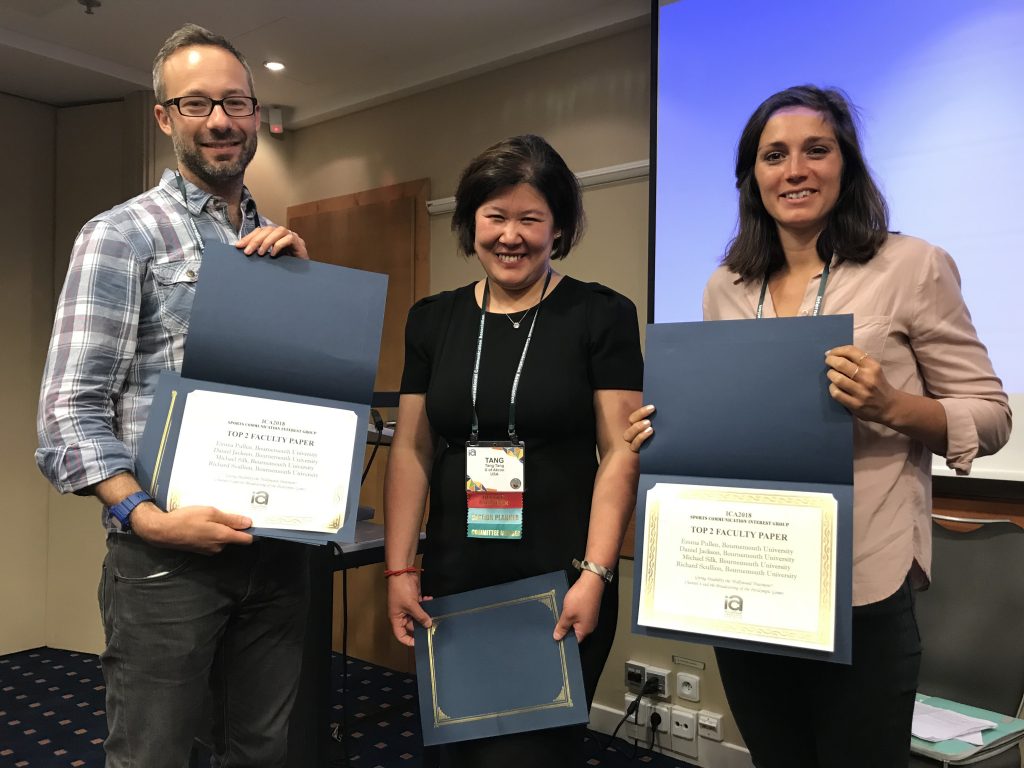Dr. Alina Dolea, member of BU Centre for Comparative Politics and Media Research, published open access together with Prof. Diana Ingenhoff from University of Fribourg (Switzerland) and Dr. Anabella Beju from Lucian Blaga University of Sibiu (Romania) the article “Country images and identities in times of populism: Swiss media discourses on the ‘stop mass immigration’ initiative” in International Communication Gazzette: https://journals.sagepub.com/doi/full/10.1177/1748048520913462

The research was carried out during Dr. Dolea’s SCIEX postdoctoral fellowship at University of Fribourg and funded through the SCIEX competitive grant “Discourses on country image promotion and identity in Western and Eastern Europe. A comparative study on Switzerland and Romania (DiCoPro)”. The Scientific Exchange Programme (Sciex-NMSch) was part of the Swiss Contribution to the New Member States (NMS) of the European Union.
The article shows country images are instrumentalized in public debates beyond strategic communication contexts and practices. The authors innovatively linked studies on country images and identities with migration and populism as communication phenomenon and ideology discursively articulated by political and media actors. They used Critical Discourse Analysis to show how media construct, re-construct and mobilize various representations and descriptors of Switzerland (as a country, as a state or as a nation) in the debates following the 2014 Swiss referendum on “stop mass immigration initiative”. Projecting fictitious scenarios, fear and uncertainty, media have ultimately constructed Switzerland’s image through a populist type of discourse, reproducing the populist ideology of dividing society into polarized categories through strategies of inclusion and exclusion.
This is a great example of multidisciplinary research carried out within the International Communication Association, as authors linked streams of critical research emerging within the Public Diplomacy Interest Group with more established research on populism within the Political Communication Division.
 A video recording of the roundtable on Public Diplomacy and “what is next after COVID-19” is now available
A video recording of the roundtable on Public Diplomacy and “what is next after COVID-19” is now available  atures that she co-ordinated as a volunteer. The Group has grown fast to over 100 members worldwide and brings together scholars investigating topics related to public diplomacy, nation branding, country image and reputation, public relations for and of nations, as well as political, global and cultural communication influencing international relations. She organized the 2018 doctoral and postdoctoral Public Diplomacy preconference in Prague and the 2019 Washington “Public Diplomacy in the 2020s”, including a panel hosted by the US Department of State.
atures that she co-ordinated as a volunteer. The Group has grown fast to over 100 members worldwide and brings together scholars investigating topics related to public diplomacy, nation branding, country image and reputation, public relations for and of nations, as well as political, global and cultural communication influencing international relations. She organized the 2018 doctoral and postdoctoral Public Diplomacy preconference in Prague and the 2019 Washington “Public Diplomacy in the 2020s”, including a panel hosted by the US Department of State. Dr Nael Jebril was recognised for his co-edited book entitled
Dr Nael Jebril was recognised for his co-edited book entitled 











 REF Code of Practice consultation is open!
REF Code of Practice consultation is open! BU Leads AI-Driven Work Package in EU Horizon SUSHEAS Project
BU Leads AI-Driven Work Package in EU Horizon SUSHEAS Project Evidence Synthesis Centre open at Kathmandu University
Evidence Synthesis Centre open at Kathmandu University Expand Your Impact: Collaboration and Networking Workshops for Researchers
Expand Your Impact: Collaboration and Networking Workshops for Researchers ECR Funding Open Call: Research Culture & Community Grant – Apply now
ECR Funding Open Call: Research Culture & Community Grant – Apply now ECR Funding Open Call: Research Culture & Community Grant – Application Deadline Friday 12 December
ECR Funding Open Call: Research Culture & Community Grant – Application Deadline Friday 12 December MSCA Postdoctoral Fellowships 2025 Call
MSCA Postdoctoral Fellowships 2025 Call ERC Advanced Grant 2025 Webinar
ERC Advanced Grant 2025 Webinar Update on UKRO services
Update on UKRO services European research project exploring use of ‘virtual twins’ to better manage metabolic associated fatty liver disease
European research project exploring use of ‘virtual twins’ to better manage metabolic associated fatty liver disease